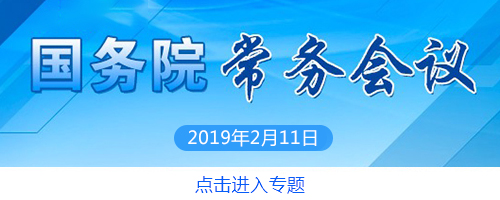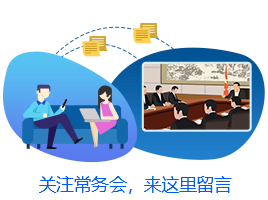Xinhua News Agency, Beijing, February 15th Title: Let more life-saving and emergency-saving drugs enter medical insurance-The construction of dynamic adjustment mechanism of medical insurance catalogue in China has entered an accelerated period.
Xinhua News Agency reporter Chen Fang, Zhang Quan
The change of medical insurance catalogue is related to the well-being of hundreds of millions of participants.
Zero tariff on imported anticancer drugs, medical insurance negotiation, centralized drug procurement organized by the state … Since 2018, China has taken a series of measures to promote drug price reduction.
The executive meeting of the State Council recently pointed out that China will speed up the frequency of adjusting the medical insurance drug list and include more life-saving anticancer drugs and other drugs into medical insurance. This means that the construction of the dynamic adjustment mechanism of China’s medical insurance catalogue has entered an accelerated period, and the people are expected to gain more happiness.
Anti-cancer drugs enter medical insurance, and patients no longer look forward to "drugs"
The movie Dying to Survive, which was a big hit last year, aroused widespread concern about anticancer drugs in society. Once, "a pill" dragged down a family. Now, anticancer drugs have entered medical insurance, bringing hope to more families.
With the comprehensive promotion of medical reform, the "combination boxing" of drug price reduction policy has been implemented one after another and achieved practical results. Accelerating the adjustment frequency of medical insurance drug list and bringing more good drugs into medical insurance have become the key links to benefit patients.
For lung cancer patients with T790M gene mutation, the third-generation targeted drug oxitinib has obvious curative effect, but for Mr. Wang of Anhui Province, the "sky-high price" of a box of 50,000 yuan once made him look forward to "medicine". After the national medical insurance negotiation and inclusion in medical insurance, the burden of medical expenses has been greatly reduced.
The relevant person in charge of the National Medical Insurance Bureau said that in order to allow patients to enjoy more good drugs without causing a serious deficit in the medical insurance fund, China has reduced the drug price through price negotiation and squeezed out the unreasonable part of the drug price.
In October 2018, 17 kinds of anticancer drugs, including oxitinib, were included in the Category B scope of the National Drug List of Basic Medical Insurance, Work Injury Insurance and Maternity Insurance (2017 Edition), and the medical insurance payment standard decreased by an average of 56.7% compared with the retail price.
By the end of last year, medical institutions and pharmacies nationwide had purchased about 1.84 million tablets (tablets/unit) of 17 kinds of anticancer drugs negotiated by the country at the negotiated price, with a total purchase amount of 562 million yuan, which saved 918 million yuan in procurement costs compared with the pre-negotiated price, and reduced the cost burden after medical insurance reimbursement by more than 75%.
To meet the people’s drug demand, the national medical insurance drug list "grows again and again"
Since the first edition of the national medical insurance drug list was formulated in 2000, it has been revised in 2004, 2009 and 2017, and the coverage of drugs has been increasing. When the 2017 edition of the National Medical Insurance Catalogue was released, it contained a total of 2,535 drugs. During the revision process, four types of clinical drugs, such as children’s drugs, innovative drugs, major disease treatment drugs and ethnic drugs, were given key support.
The incidence of chronic diseases and malignant tumors has increased, and the number of patients with rare diseases has continued to increase … At present, the spectrum of diseases in China’s population has changed significantly. Compared with the drug demand of the masses, there is still much room for improvement in the updating frequency, catalogue proportion and structure of the national medical insurance catalogue. For example, in 2018, the first batch of 121 rare diseases listed by the state that patients in urgent need of treatment drugs have not been included in medical insurance; Hummel, the "global drug king" who has 17 indications and treats a variety of rheumatic immune diseases, is also out of the catalogue.
In May last year, China published the First List of Rare Diseases, in which 121 rare diseases such as multiple sclerosis were included. In July, National Medical Products Administration approved the marketing of Obadiah in China for the treatment of relapsing multiple sclerosis, which is the first oral disease correction drug approved in China for the treatment of multiple sclerosis.
"No matter whether it is a rare disease or a chronic disease, a disease that causes a huge economic burden to patients is a serious illness." Wang Chen, an academician of China Academy of Engineering and director of Peking Union Medical College of China Academy of Medical Sciences, said that biological agents are the most effective drug for treating some chronic diseases at present. If patients can get timely and standardized treatment, they will maximize their quality of life. We should use the medical insurance mechanism to assume the social responsibility of benefiting more patients, give full play to the scientific guiding role of the medical insurance mechanism in the medical ecology of the whole society, encourage the research and development of drugs for the treatment of rare diseases, and make the basic drug list and the basic medical insurance list and other related systems reasonably connected and linked.
Dynamic adjustment mechanism is the key to let more good drugs enter medical insurance.
The Central Economic Work Conference held not long ago clearly stated that "more life-saving and emergency-saving medicines should be included in medical insurance". The the State Council executive meeting held on February 11th once again proposed to speed up the registration and approval of new anticancer drugs at home and abroad, organize experts to select new overseas drugs that are urgently needed in clinic, improve the import policy, and promote the simultaneous listing of new overseas drugs in China. Smooth the temporary import channels of anticancer drugs urgently needed in clinic.
"For the people, this is a great benefit." Wang Bo, a special researcher at the National Center for Drug Policy and Pharmaceutical Industry Economics of China Pharmaceutical University, said that the most important thing now is to explore and establish a dynamic adjustment mechanism. It is necessary to strengthen the evaluation method of pharmacoeconomics, realize the selection method of combining clinical recommendation, industry association and enterprise application, and narrow the gap between people’s growing health demand and medical service supply level as soon as possible.
As a local innovative practice, medical insurance in some provinces and cities has included new drugs and good drugs which are urgently needed by patients, greatly improve the quality of life of patients and their families, have clear curative effects and are clinically necessary, and achieved good benefits. For example, Xiumeile, which is used to treat autoimmune diseases such as rheumatoid arthritis and ankylosing spondylitis, has been included in the serious illness medical insurance system of eight provinces, cities or units such as Qingdao, Shandong and Shenzhen, Guangdong in China.
Wang Bo believes that the country urgently needs to establish a mechanism of "making medicines well and getting good results". In the future, the coverage of the national medical insurance catalogue should be further expanded to more fields, so as to realize "regular approval of enterprises, regular review of medical insurance and regular update to meet the requirements". With the steady progress of a series of measures such as encouraging the research and development of innovative drugs and facilitating the listing of new drugs, more life-saving and emergency-saving good drugs can be accelerated.
By December 10, 2018, National Medical Products Administration Drug Evaluation Center had received and processed more than 1,500 applications for communication and exchange, including more than 600 applications for anti-tumor drugs, and the progress of innovative drug research and development of domestic pharmaceutical companies entered the expressway.
This year, China will cancel the declaration requirement that some imported drugs must be listed overseas before they can apply for import, encourage global innovative drugs to be developed simultaneously at home and abroad, and attract more cancer treatment drugs to be listed in China. While improving the quality of drugs and reducing the price of drugs, we will guide enterprises to increase innovation.

